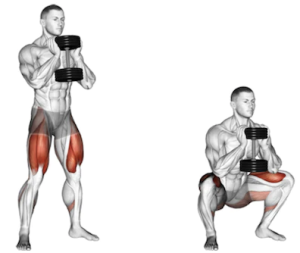I know, this is out of context. My protein intake is unique to me, right? Well, I am sharing this because I think this IS relevant to you. I will link my considerations for each supplement below. I will also attach the protein content of various foods and a one-page format.
 First and foremost, I emphasize unprocessed protein from dietary sources. I mix everything in, fish – shellfish – pork – beef – poultry – legumes – eggs – cultured dairy. How much protein? Probably more that you are eating. Consensus amongst researchers settles on about 1.3 to 1.8 g of protein per kilogram of body weight. [https://pubmed.ncbi.nlm.nih.gov/22150425/]
First and foremost, I emphasize unprocessed protein from dietary sources. I mix everything in, fish – shellfish – pork – beef – poultry – legumes – eggs – cultured dairy. How much protein? Probably more that you are eating. Consensus amongst researchers settles on about 1.3 to 1.8 g of protein per kilogram of body weight. [https://pubmed.ncbi.nlm.nih.gov/22150425/]
For me this is 94-130 grams of protein. With more athletic demand or higher lean body mass, these numbers go up to 1.8-2.0, raising my range to 130-145 grams – I think this is right for me, and challenging without some supplemental protein.
An egg has 6-7 grams. It is hard to get to the necessary protein ranges for most of us. But for me, I have skin in the game to get it right. This may be you too. Here are the protein supplements I am currently using, in order of importance.
1 – Whey protein isolate. One scoop per day provides me an additional 25 grams of protein.
Whey protein isolate, from a source that maintains protein quality and integrity, is first on my list for many reasons. Whey protein contains therapeutic dose of glutamine and branched-chain amino acids, and a unique composite of dairy proteins that have anti-inflammatory activity compared to casein. The overwhelming goal is to support my activity and build muscle in response to exercise and activity. Loss of lean body (eg. muscle mass & bone density) is called sarcopenia, and for those of us over 50 years old, it is bad news.

As we age, lean muscle loss is associated with a corresponding brain shrink. Yeah, sounds bad right? in fact researchers see this correspond with dementia onset and progression. Research on weight loss with Parkinson’s appears to parallel these findings. [10.1001/archneurol.2010.38]
Whey protein helps me support the effort I do physically with squats and resistance training and the higher mass of lean muscle helps me toward neurological health and longevity. [https://doi.org/10.1111/jgs.18419]
Whey-supplemented patients experienced increases in blood reduced glutathione – a compound capable of reducing inflammation and combatting oxidative stress in the brain of people with Parkinson’s. [https://pubmed.ncbi.nlm.nih.gov/27423583/]
BTW – for those with Parkinson’s on dopamine therapy, the addition of 25 grams of whey isolate did not interfere with dopaminergic absorption or efficacy.
[https://pubmed.ncbi.nlm.nih.gov/36786430/]
2 – L Tyrosine. I use 2 capsules each morning (1000 mg).
This amino acid is a precurser to the neurotranmitters epineprhine, dopamine, norepinephrine. Over the years, I have used Tyrosine for patients that wean off of or replace stimulant medication like Ritalin, Vyvanse, or Adderall. Personally, due to my early Parkinson’s, I am taking it for its effect of elevating baseline dopamine levels. Very high doses (7000-15,000 mg) have been studied and proven to dramatically elevate dopamine levels, and while “safe” – neurological outcomes may be worse with these crazy high doses [https://www.ncbi.nlm.nih.gov/pmc/articles/PMC5748730/]
3 – L Creatine powder. I use 5 g [1 scoop] of this powder frothed into a little milk or oat milk and added to a half decaf short coffee.
Creatine is usually marketed with a guy packing a huge bicep or big pecs. Not my reason for using it. But it is playing from the bodybuilders’ playbook. There is interesting research on this amino acid – and some is conflicting. One study shows benefit is slowing theprogression of neurodegenerative disease – another few show no benefit – and yet another displayed a negative outcome but only if those same individuals ingested significant amounts of caffeine. My response to all this? I use a little creatine – and limit/eliminate caffeine in my diet. [https://www.neurologylive.com/view/gene-caffeine-creatine-link-parkinson-disease]
4 – Collagen peptides – ½ to 1 scoop daily – but only as needed to fill in where broth in my diet should be
I have seen plenty of benefit from collagen peptides over the years. I have prescribed them for stretch marks in teenagers, for soft tissue support post knee or hip surgery, and yeah, plenty of people think that using collagen will reduce facial wrinkles. I’m sorry to say, there is not convincing evidence for the latter, but for other reasons, collagen has my vote. Of course I’d much rather see chicken broth as the food source, and I lean toward that whenever possible, but if unavailable for awhile, I will dig into 5-8 grams of collagen powder frothed into some milk or “fake” milk and added to a hot drink.





Comments are closed.